Notes
Brendan Hoffman: Thousands of Small Injustices
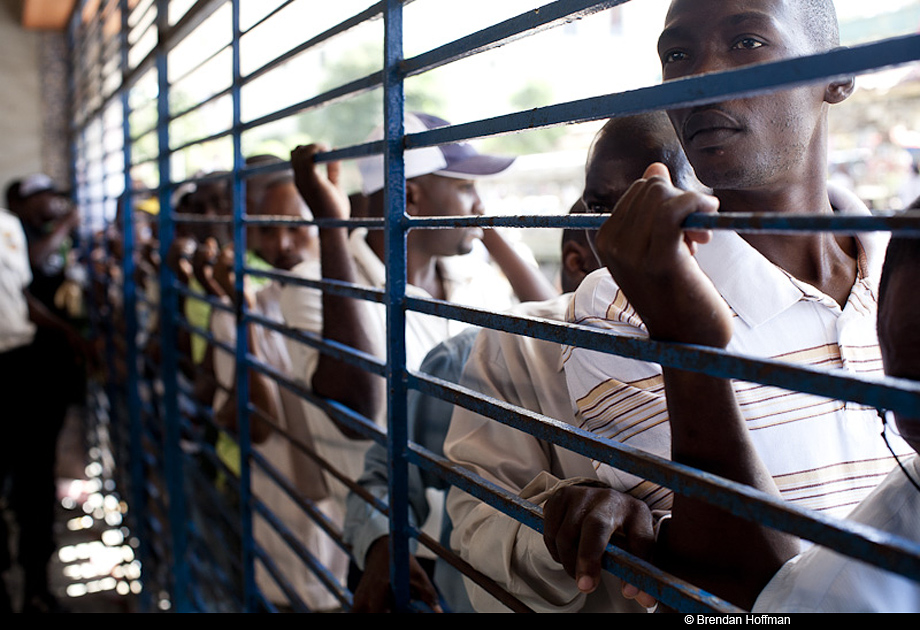 Voters wait in line to cast their ballots in presidential and legislative elections on November 28, 2010 in Port-au-Prince, Haiti. Following widespread allegations of fraud, 12 of the 19 presidential candidates asked that the results be canceled.
Voters wait in line to cast their ballots in presidential and legislative elections on November 28, 2010 in Port-au-Prince, Haiti. Following widespread allegations of fraud, 12 of the 19 presidential candidates asked that the results be canceled.
Following up on Spencer Platt’s thoughts and analysis of the recent outbreak of cholera in Haiti, photographer Brendan Hoffman was back in Haiti to cover the presidential election. He writes from Port-au-Prince:
I can give you slightly stream-of-consciousness thoughts about what I’ve seen: The main disaster took place long before election day. I can’t tell you the number of people I spoke with who were not able to get the card needed to vote. One woman I met last week waiting outside a location where the cards could be picked up told me she had been there almost every day, from 8 am until 5 pm for a month, trying to get her voting card. So far, she hadn’t. Basically, it seems as though you need to know somebody, or be a supporter of the right candidate, or maybe just be lucky, to exercise your right to vote in the first place. I haven’t read a lot of reports yet, but what I have seen indicated turnout in Port-au-Prince at only 10-20%.
In the rural areas, turnout was probably a bit higher. Those areas, however, were not exposed to the variety of candidates the way Port-au-Prince residents have been. The main form of campaign advertising is to plaster posters on every available surface. Candidates with less money have fewer posters. Whereas Michel Martelly is the hands-down favorite in Port-au-Prince, at least according to my own straw polling, rural residents may not even realize he is running for office, or even know who he is.
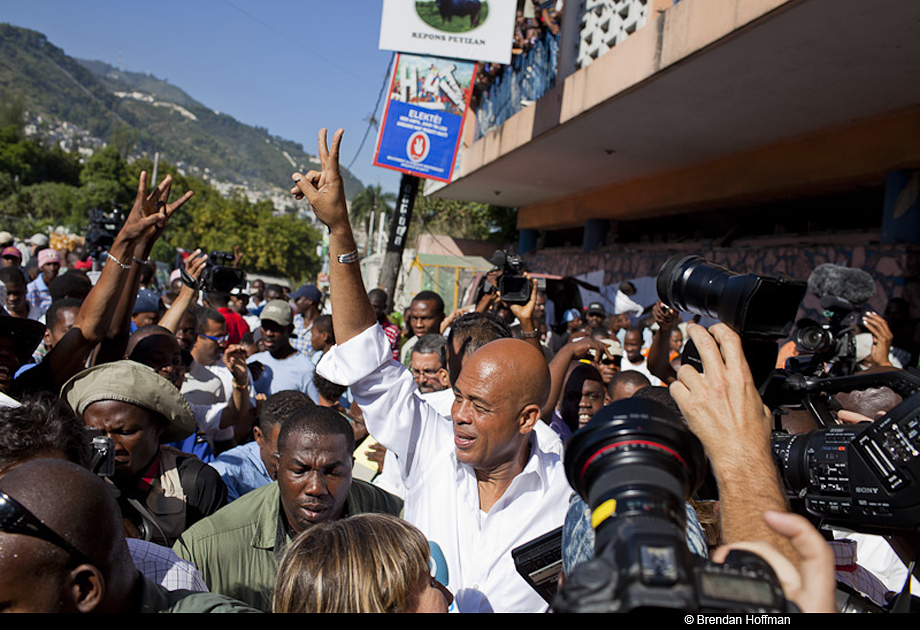
Candidate Michel Martelly gestures to the crowd after casting his ballot on November 28, in Port-au-Prince.
Election day itself was filled with sporadic reports of clear mayhem, as demonstrated in the widely published photos of ballots all over the ground. But this is probably the kind of election that will be decided on the basis of thousands of small injustices. One of my roommates here was an election monitor who watched as the polling station leader challenged clear votes for other candidates out of his preference for Jude Celestin, the chosen successor of current president Rene Preval.
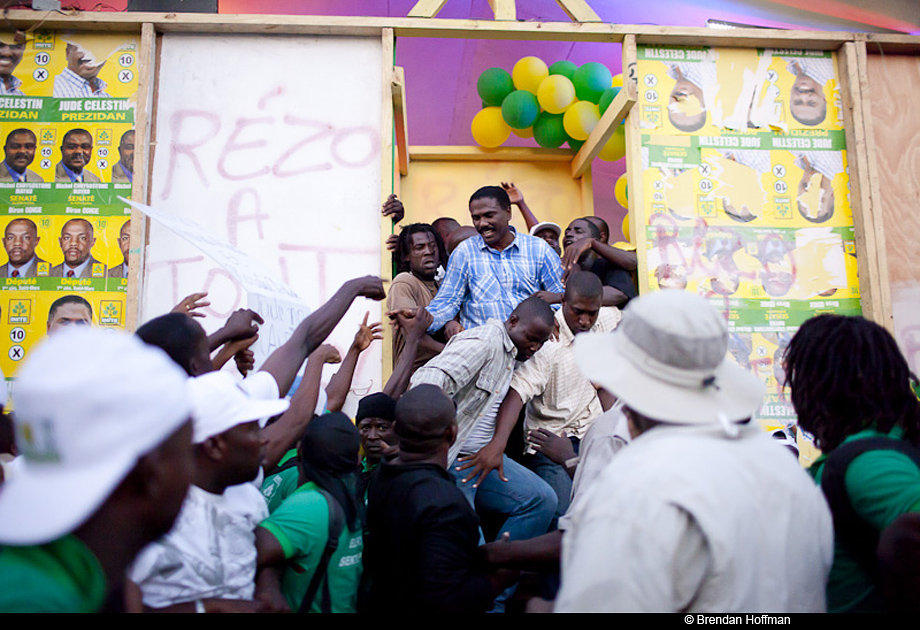 Candidate Jude Celestin campaigns on Thursday, November 25, in the Delmas neighborhood of Port-au-Prince.
Candidate Jude Celestin campaigns on Thursday, November 25, in the Delmas neighborhood of Port-au-Prince.
Reports of people being turned away from polling stations because their names were not on the right list are accurate in my own experience. But the polling station where I spent most of my day, while opening a bit late, worked its way through the block-long line outside by early afternoon. One observation I can make is that the large majority of voters were men. I’m not sure why or what that means, just that it’s what I saw.
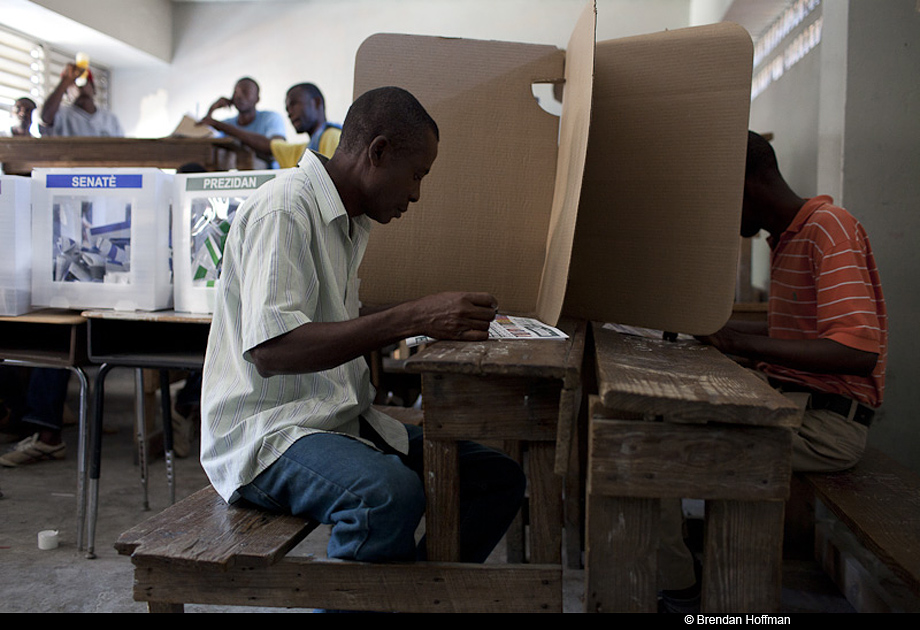
Voters cast their ballots in presidential and legislative elections on November 28, in Port-au-Prince.
In general, it was not election day that was chaotic so much as the process, which from the beginning conspired to prevent millions of otherwise eligible people from casting any ballot whatsoever. Hence, it was curious to most journalists here that the OAS (Organization of American States) basically endorsed the polling as legitimate.
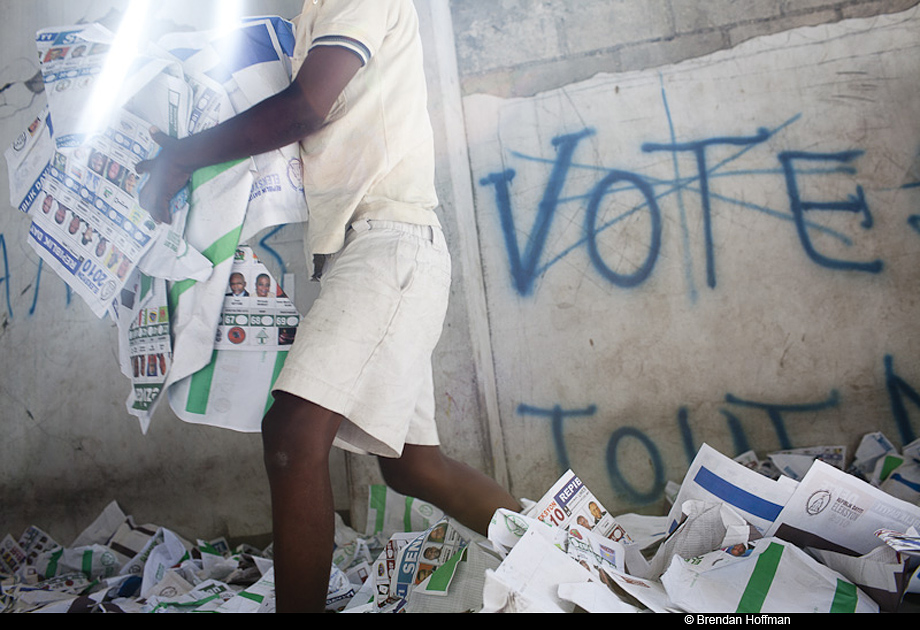 A boy plays with ballots strewn about the floor at a polling station that was ransacked. November 29, Port-au-Prince.
A boy plays with ballots strewn about the floor at a polling station that was ransacked. November 29, Port-au-Prince.
How to move forward from here is the most interesting question. Unless one of the candidates wins an outright majority, there will be a two-person runoff on January 16. If Martelly is not a part of that runoff, I do think it’s very possible that Port-au-Prince will explode. Yet Celestin has all the political machinery and money behind him, while Mirlande Manigat is the most likely compromise candidate. It’s difficult to predict which of the three will shortly be eliminated. Preliminary results are due December 7, final results December 20.
–Brendan Hoffman
PHOTOGRAPHS by BRENDAN HOFFMAN
Please see Brendan’s series on Haiti, six months after the earthquake.

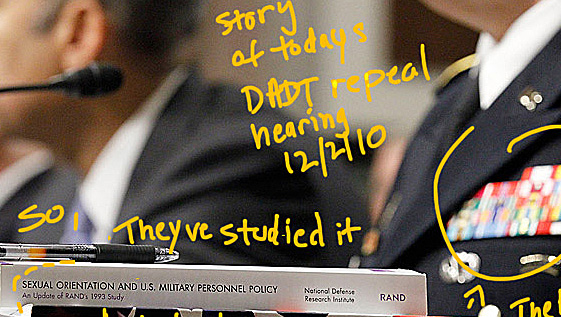
Reactions
Comments Powered by Disqus